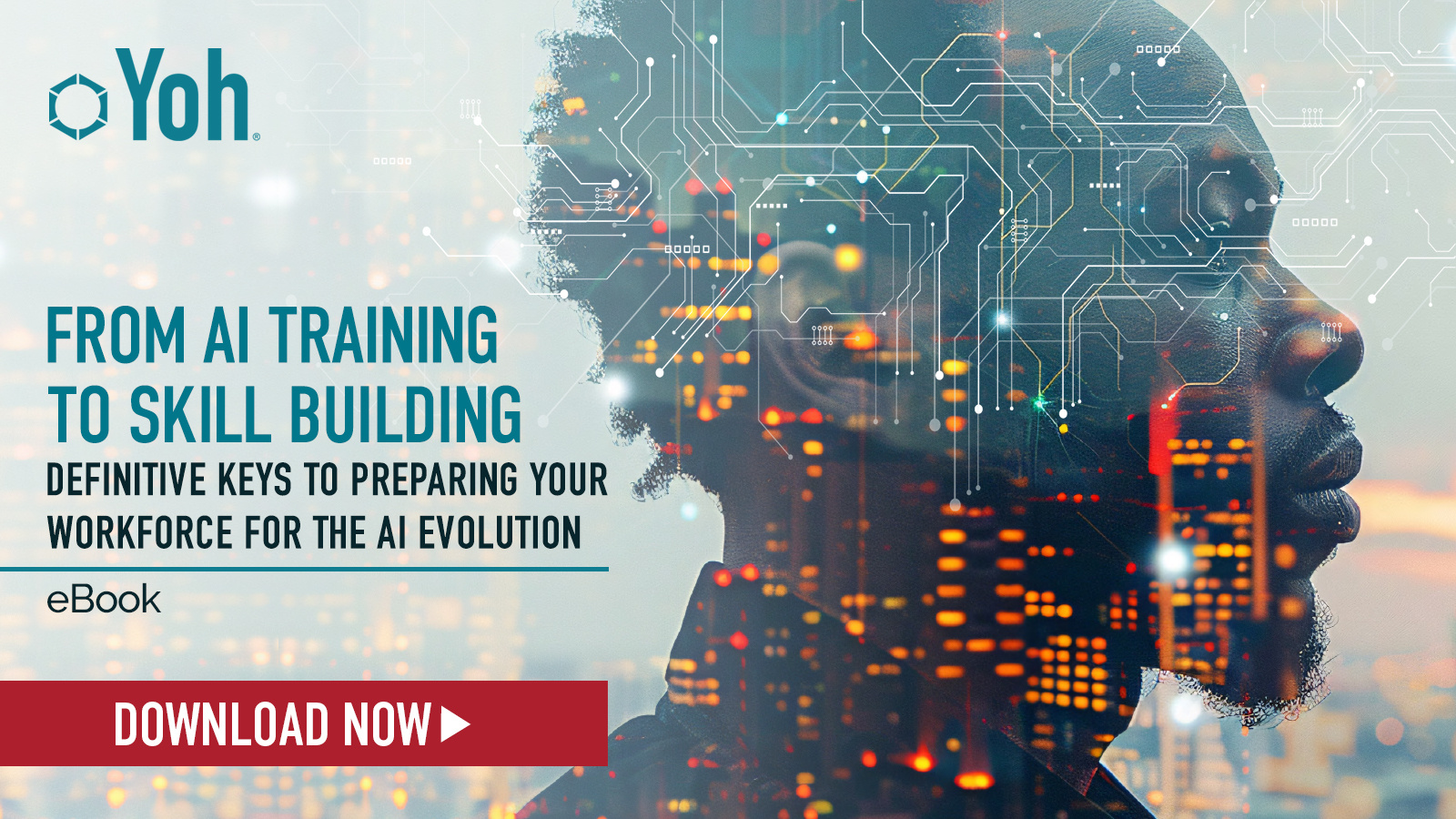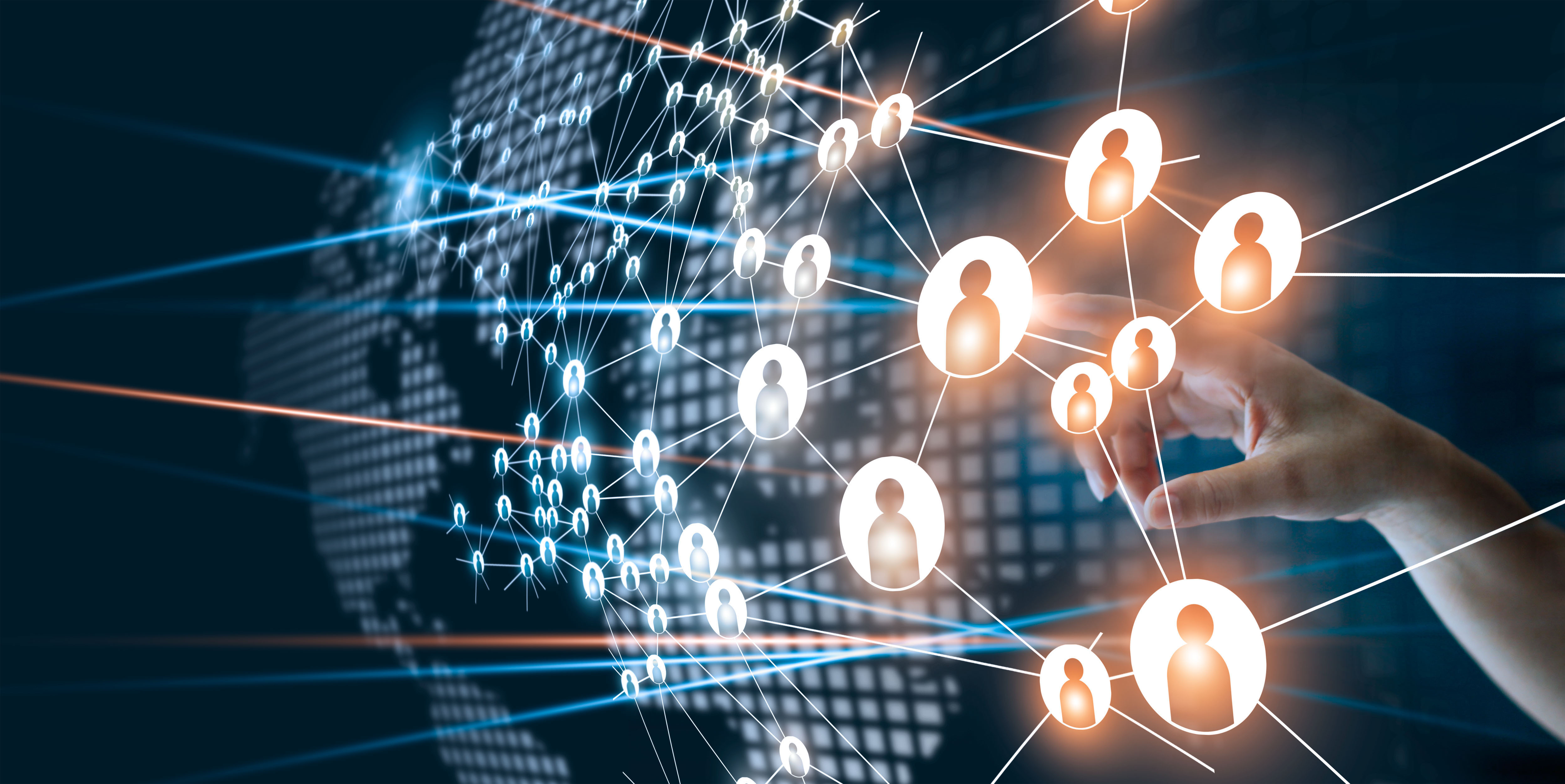Preparing Your Workforce for the AI Evolution: Three Key Strategies
Artificial Intelligence is no longer exclusive to tech giants. Most organizations, regardless of...
%20Size%20Photos/GettyImages-958465448.jpg?width=779&height=726&name=GettyImages-958465448.jpg)
%20Size%20Photos/GettyImages-958465448.jpg?width=375&height=225&name=GettyImages-958465448.jpg) According to a survey of 273 HR and talent acquisition (TA) leaders across North America, 30% of companies have increased their investments in automation and AI for recruiting over the last two years. The growing recognition of AI's ability to streamline hiring processes, reduce time-to-hire, and improve candidate matching has driven the surge. By automating monotonous activities like scheduling interviews and data entry, companies can instead focus on personalizing interactions with qualified candidates.
According to a survey of 273 HR and talent acquisition (TA) leaders across North America, 30% of companies have increased their investments in automation and AI for recruiting over the last two years. The growing recognition of AI's ability to streamline hiring processes, reduce time-to-hire, and improve candidate matching has driven the surge. By automating monotonous activities like scheduling interviews and data entry, companies can instead focus on personalizing interactions with qualified candidates.
Several staffing agencies have already adopted AI for tasks like resume screening, reaping many benefits from these solutions. In 2024, it's clear that AI will play a significant role in recruitment processes. If you are looking to leverage the cutting-edge technology for your recruitment process, this blog will offer insights into its benefits and use cases.
Before discussing the use cases, let's some know benefits of using AI in recruitment and staffing.
This is the most beneficial aspect of using AI in recruitment and staffing. Understanding your organization's skills gap is important.
AI gathers data on the skills of current employees and the required skill set for job openings, which helps identify specific skill gaps and make informed decisions.
Recognizing these skill gaps also helps understand the market dynamics and the company, ensuring that the right talent is placed in the correct position.
AI is widely recognized for its data analysis capabilities, which make it helpful in screening candidates. It employs machine learning algorithms to quickly shortlist hundreds of resumes based on skills, experience, and qualifications.
AI can automatically conduct initial interviews using pre-entered questions and further screen candidates. This automated screening method saves recruiters time and allows them to focus on other responsibilities.
AI removes the need for human effort by automating the evaluation process. It captures the data from candidates' resumes and responses during the initial interview to evaluate and identify the candidate that best fits the company's requirements. It scans and assesses hundreds of reactions to pinpoint the right candidate for the job.
AI can also enhance the onboarding process by providing personalized messages and updates to new hires. This helps create an engaging experience for new employees, ensuring they feel welcome and prepared for their new roles.
AI can also automate tasks such as document reviews and background checks, streamlining the onboarding process and reducing the administrative burden. The automation that comes with AI further reduces the onboarding time as well.
The traditional recruitment process is quite time-consuming, as several steps have to be done manually. Using AI reduces data processing time, screening and evaluation become automated, and more detailed information is obtained.
Filtering through hundreds of job applications becomes easier and faster, too. AI in recruitment can reduce hiring time by up to 23 hours. It also shortens the duration, from shortlisting candidates to onboarding them.
The immense benefit of having AI ensures a more streamlined, efficient, and effective hiring process. This shows the potential of Artificial intelligence, too. To understand how you can use AI in your company for recruitment and staffing, we will discuss some cases that have been used further.
These are some of the most popular use cases of artificial intelligence in recruitment and staffing.
Recruiters often face the challenges of shortlisting suitable candidates among hundreds of job applicants. Plus, multiple rounds of interviews need to be conducted, which is a very time-consuming process. It has been observed that 46% of job offers have been declined by candidates due to an inefficient hiring process.
Here, AI can make things easier. Using AI analytics, job boards can easily connect candidates to the correct job position that matches their requirements of qualifications and skillset.
AI automatically screens resumes and filters out those that are not suitable for the role. Overall, it reduces the evaluation and selection time, resulting in a faster onboarding process.
You can develop self-help portals for candidates using custom AI models. It allows candidates to get information about the recruitment process easily. Further, chatbots can be used on the career website to conduct the initial interview round, asking pre-set questions and recording respondents' responses.
Chatbots can manage numerous conversations simultaneously, allowing companies to expand their operations to meet the requirements of high-volume recruitment campaigns. By automating communication and reducing manual effort, chatbots also save the company operating costs and time.
These bots use both natural language processing (NLP) and data analytics to assess the candidates' suitability by analyzing their responses.
There is a chance of human error during the evaluation process, and AI is a great performance management tool that can perform error-free and data-centric evaluations. It sets automated goals and process tracking that lets the employees and manager stay on the same track and track the performance.
By collecting employee data, AI can provide personalized feedback and refer to skill development courses for further performance improvement. Instead of the traditional approach, AI uses a data-centric approach, enhancing the employee's overall development.
AI uses the power of data analytics and research to gain a deep understanding of employees' performance. The employees' experience, engagement, fatigue, and other insights are taken into consideration for future performance evaluation and decision-making.
To provide a personalized plan that promotes a good work-life balance and avoids hurdles, AI gathers data on a candidate's work history, attrition rate, job probability, etc.
HR teams can use AI to forecast future trends, such as the likelihood of an employee leaving the company or the potential impact of specific HR-related interventions.
AI can be a beneficial factor in the training and development of an employee after hiring. For example, a salesperson may need improvement in their negotiation and communication skills, or a project manager may need training in risk management.
The use of AI's machine learning algorithms comes into play by monitoring employees' performance, answering queries, and providing real-time feedback to them.
The skills gaps and ongoing market trends analysis further provide on-the-job training programs to enhance the employee's skills in that role.
As leaders constantly find new ways to improve and streamline recruitment and staffing processes, AI has become the new normal in recruitment. From sourcing to screening and then tracking performance after employment, AI has set its roots deep into the industry.
It's time for companies to shift from traditional methods and opt for AI development services to speed up and improve their recruitment processes.

Artificial Intelligence is no longer exclusive to tech giants. Most organizations, regardless of...
October 01, 2024
/Specialty%20Practices%20Stock/IT%20and%20Engineering%20Stock/GettyImages-1405739915.jpg)
Data centers are undergoing major changes as pressure mounts to modernize infrastructure for AI....
June 05, 2025

According to a survey, an overwhelming 94% of recruiters and hiring professionals have reported...
July 27, 2023